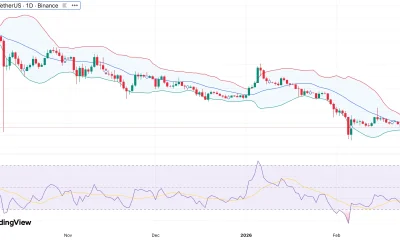‘The US Mission to Saudi Arabia has issued a shelter in place notification for Jeddah, Riyadh and Dhahran and are limiting non-essential travel to any military installations in the region’
The US Embassy in Saudi Arabia has been struck by multiple missile strikes, authorities have confirmed.
Multiple sources at the scene initially reported witnessing multiple blasts which caused the fire. The attacks have since been confirmed by the Saudi Defence Ministry, two drones attacked the United States Embassy in Riyadh, Saudi Arabia, on Monday night.
Later, US officials confirmed the attacks to Fox News. Also confirmed were two new explosions in Riyadh’s diplomatic quarter following the earlier drone attack against the US embassy.
Ensure our latest headlines always appear at the top of your Google Search by making us a Preferred Source. Click here to activate or add us as your Preferred Source in your Google search settings.
Per initial estimates, minor material damage was done to the building, and a limited fire broke out.
The US Embassy Riyadh has issued a statement to American citizens in Saudi Arabia, urging them to shelter in place as the risk of missile attack remains high.
“The US Mission to Saudi Arabia has issued a shelter in place notification for Jeddah, Riyadh and Dhahran and are limiting non-essential travel to any military installations in the region – we recommend American citizens in the Kingdom to shelter in place immediately,” the Riyadh US Embassy statement said. “The US Mission to Saudi Arabia continues to monitor the regional situation.”The embassy urged any Americans who may be in those areas to monitor official information sources and to follow the instructions of local authorities.
The consulate building was empty at the time of the Iranian drone strike, an official has told Fox News. A third drone is en route to US. Embassy in Riyadh, Saudi Arabia, per FOX.
As the widening war between Iran and the US and its allies has entered its fourth day, the Assistant US Secretary of State for Consular Affairs Mora Namdar urged Americans in countries including Iran, Iraq, Jordan, Lebanon and Israel to “DEPART NOW” using any available commercial transportation.
Namdar’s words came as an evacuation order for the US Embassy in Jordan was also issued, with the consulate evacuated “out of an abundance of caution”.
US president Donald Trump has said that strikes against Iran are likely to last four to five weeks but that he was prepared “to go far longer than that”.
He said US forces were determined to destroy Iran’s missile capabilities, wipe out its naval capacity, and to stop the country from obtaining nuclear weapons. The President added that the US also seeks to ensure that Iran cannot continue to support allied groups such as Lebanon’s Hezbollah, which fired missiles at Israel, drawing retaliatory airstrikes.
“This was our last, best chance to strike, what we’re doing right now, and eliminate the intolerable threats posed by this sick and sinister regime,” Trump said.
Iran has long threatened, if attacked, to drag the region into total war, including targeting Israel, the Gulf Arab states and the flow of crude oil crucial for global energy markets. All of these came under attack on Monday.
Meanwhile, Saudi Arabia’s Ras Tanura oil refinery came under attack from drones, with defences downing the incoming aircraft, a military spokesman told the state-run Saudi Press Agency. The refinery has a capacity of more than half a million barrels of crude oil a day.
A drone also targeted an oil tanker in the Gulf of Oman, killing one mariner, the sultanate said, while debris fell on an oil refinery in Kuwait. Several ships have been attacked in the Strait of Hormuz, the narrow mouth of the Persian Gulf through which a fifth of all oil trade passes and where Iran has threatened attacks.
“The attack on Saudi Arabia’s Ras Tanura refinery marks a significant escalation, with Gulf energy infrastructure now squarely in Iran’s sights,” said Torbjorn Soltvedt, an analyst at the risk intelligence company Verisk Maplecroft.
“An extended period of uncertainty lies ahead.”





































































